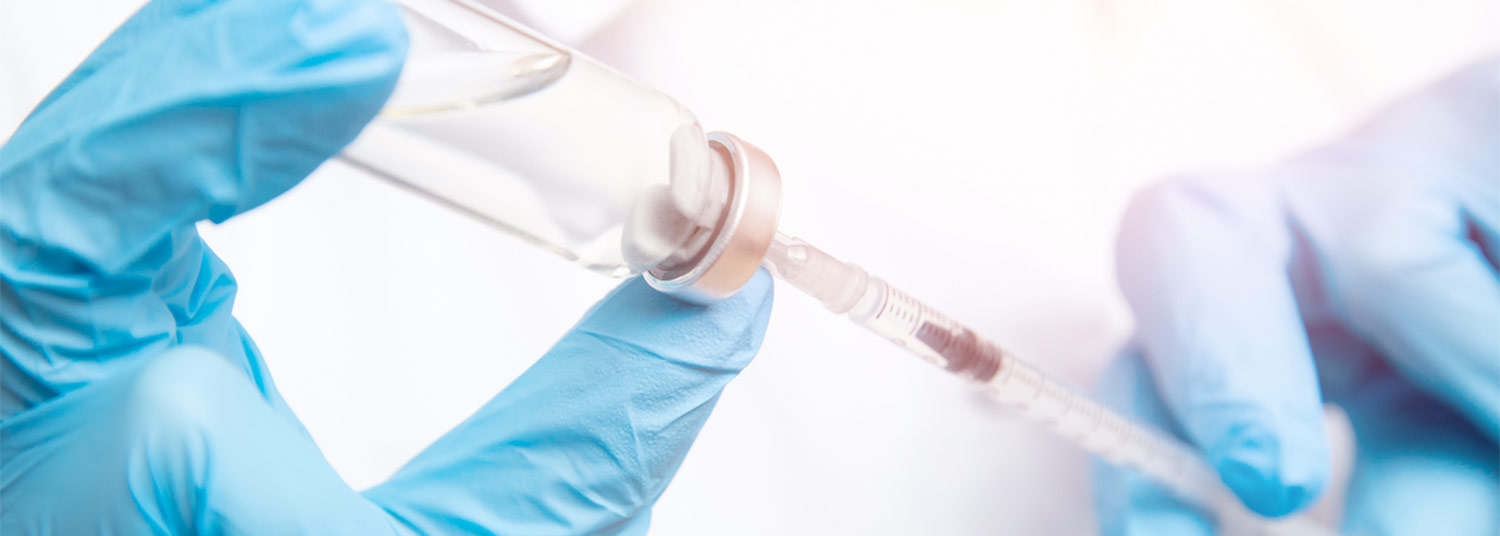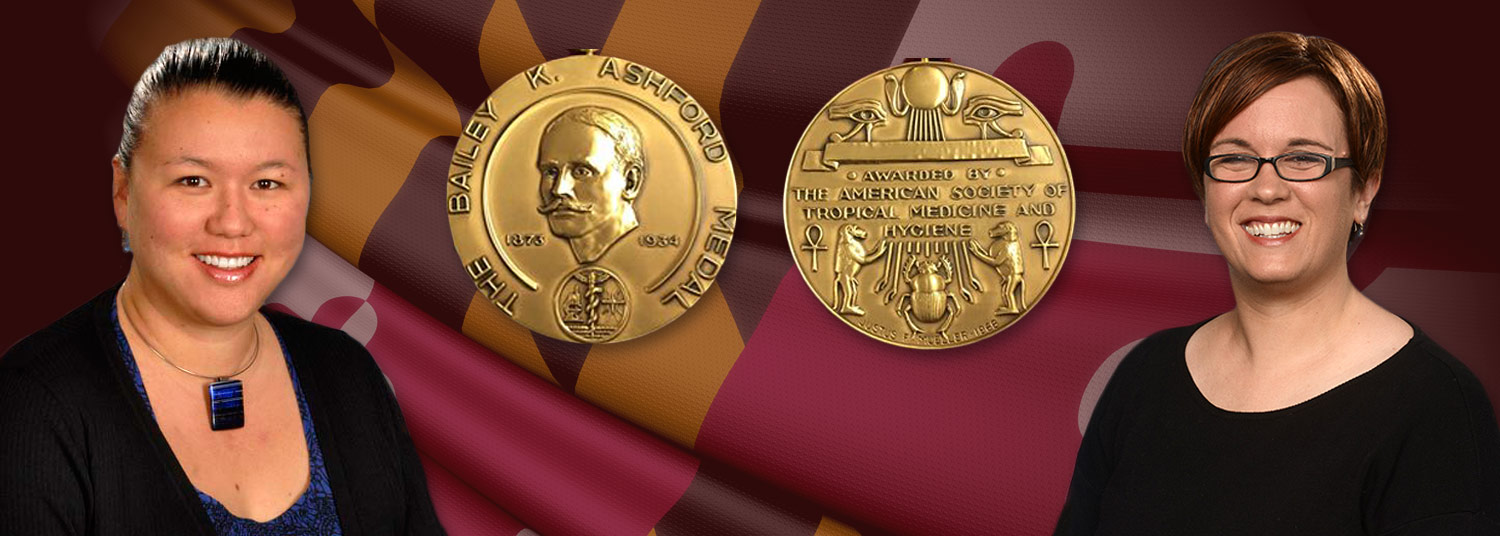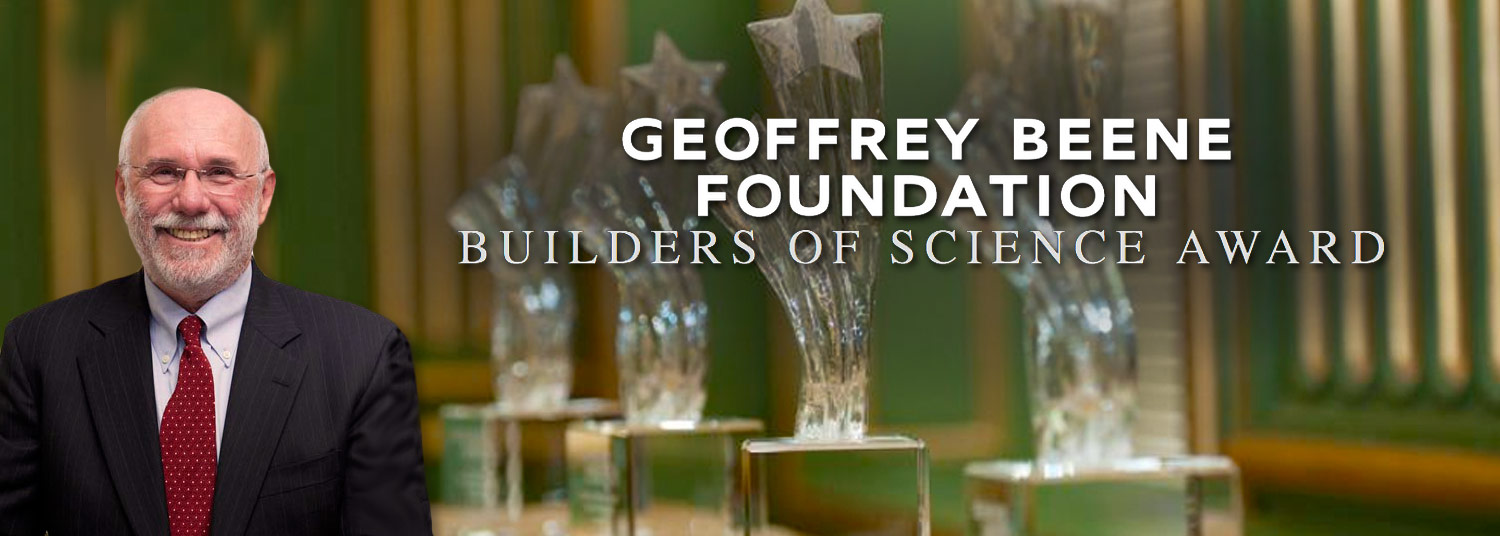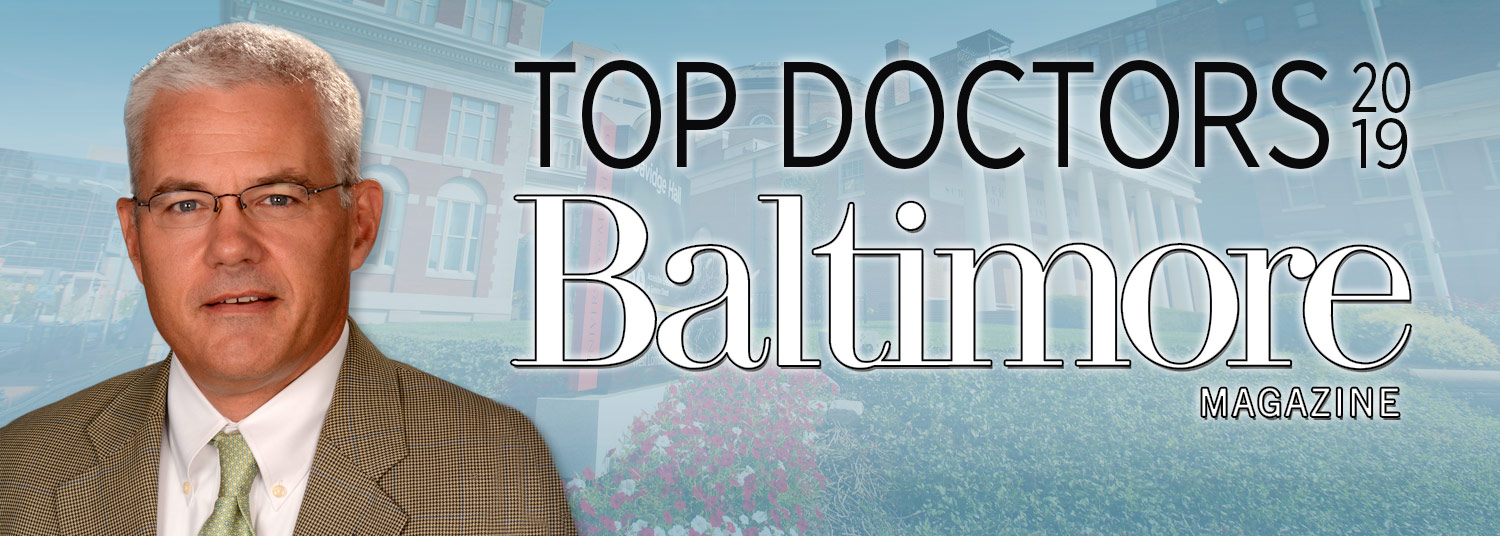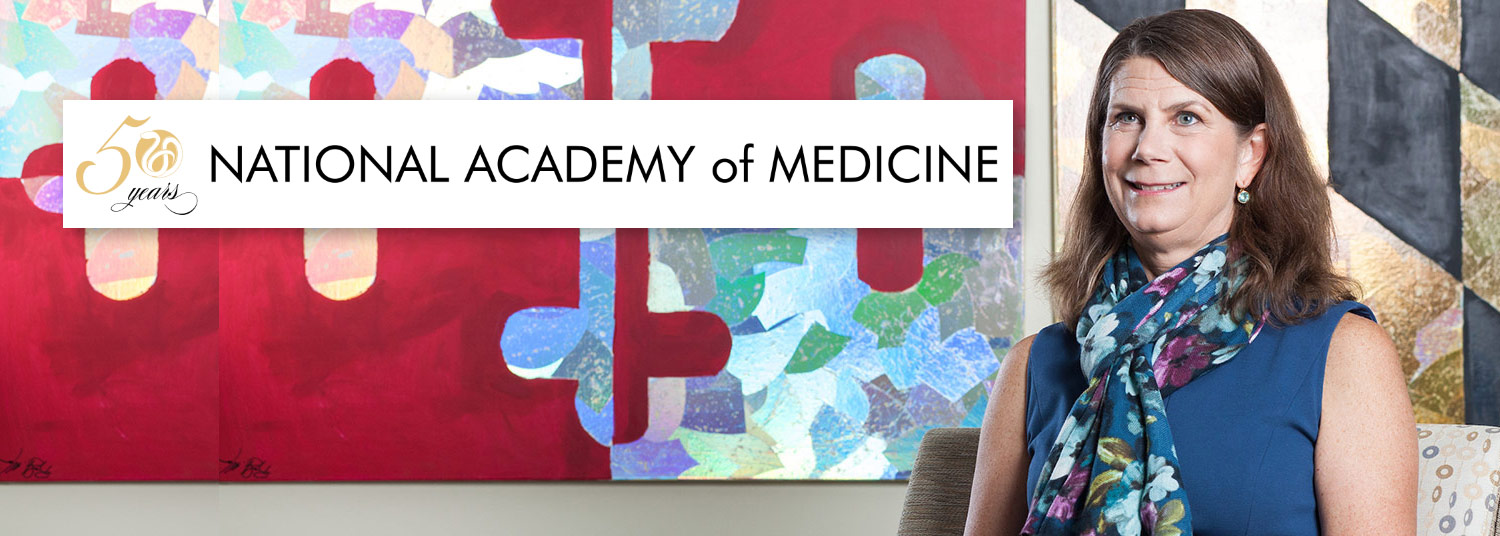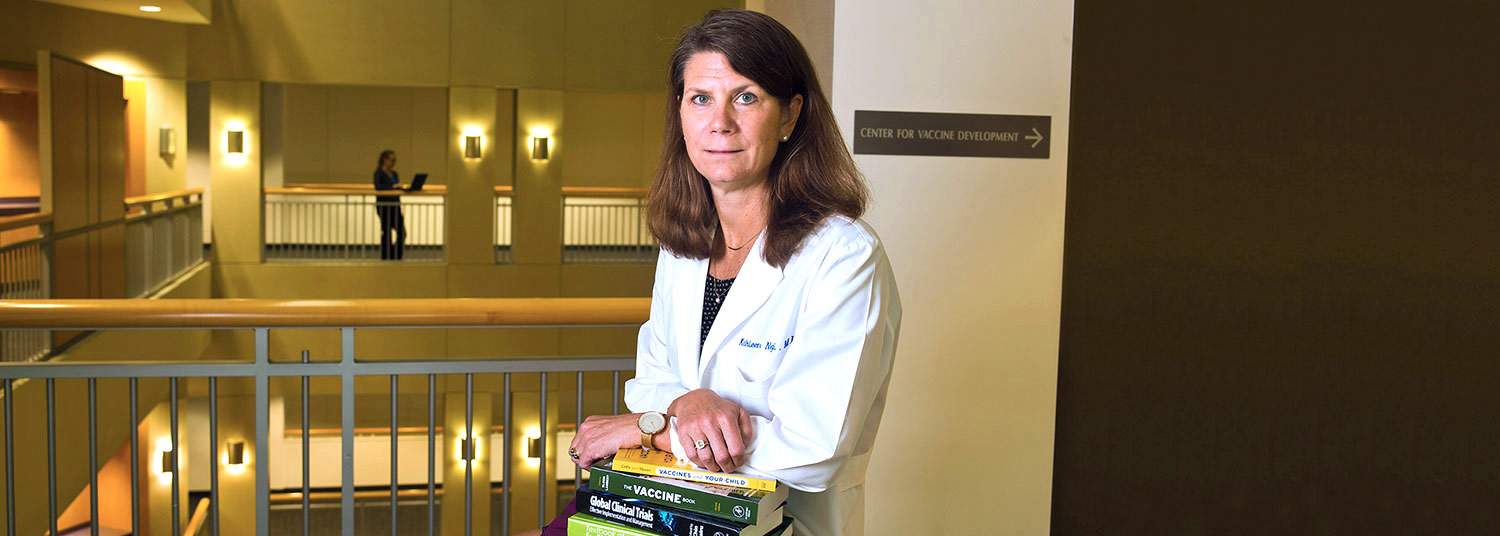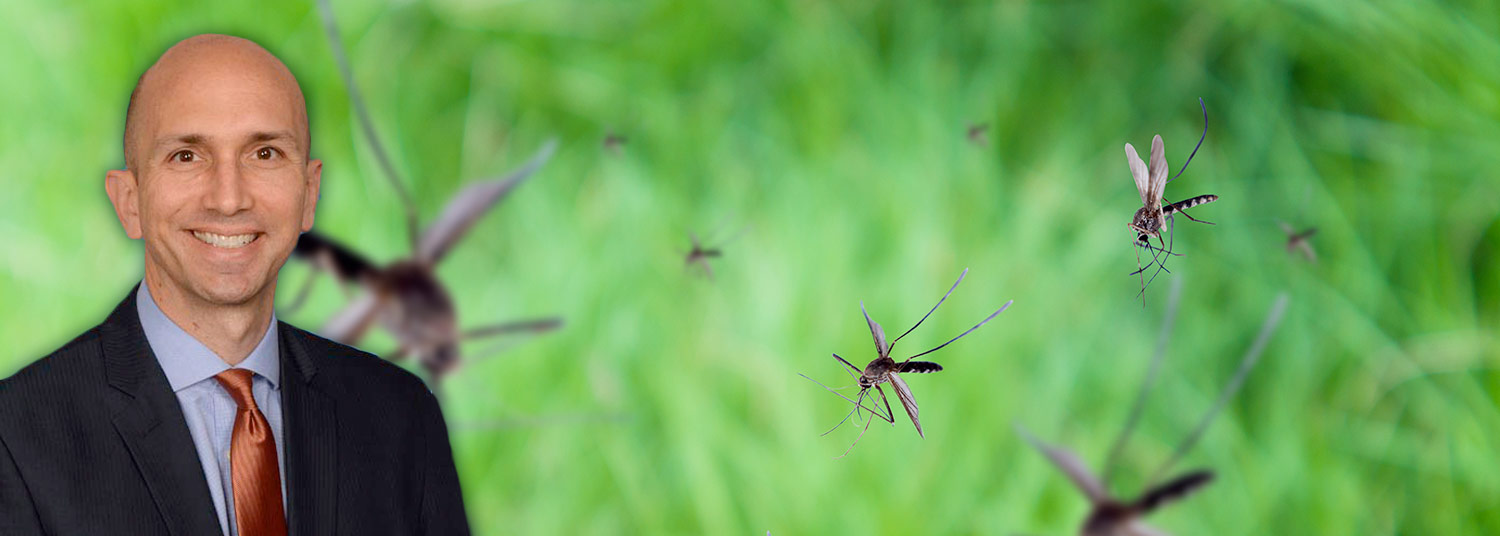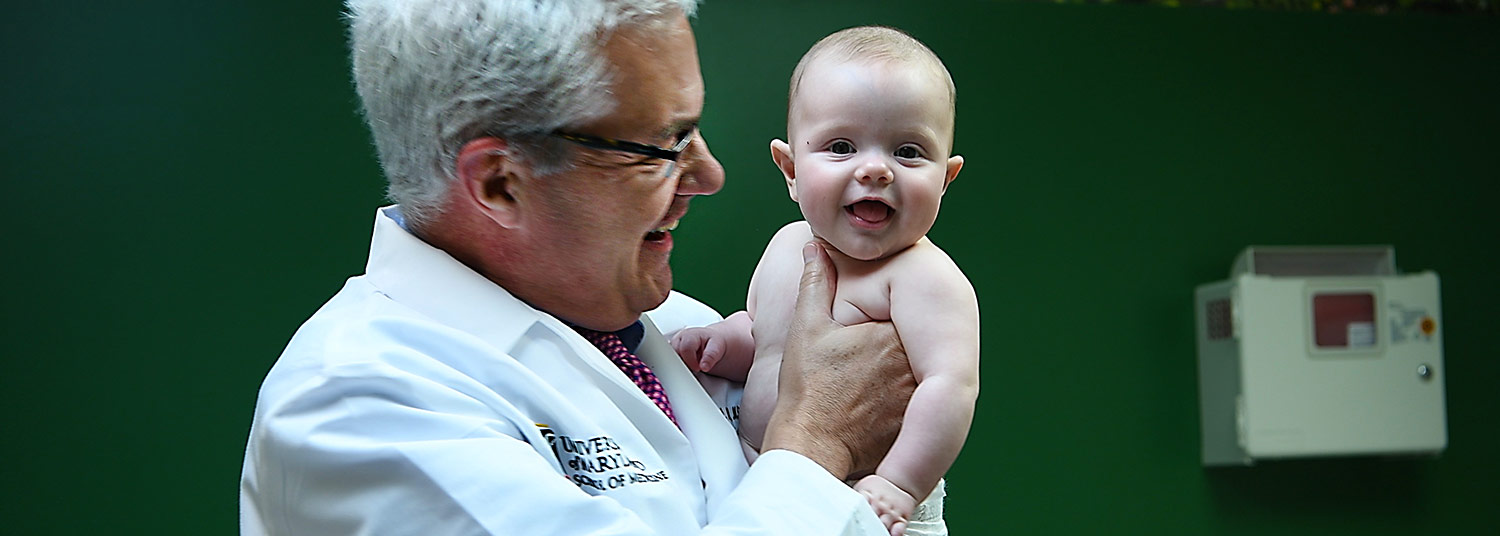November 20, 2019
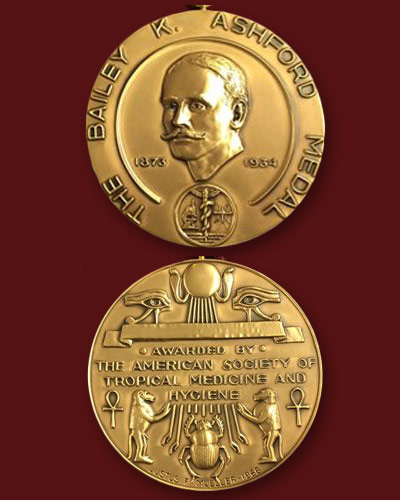
Dr. Shannon Takala-Harrison is a Leader in Malaria Research and Dr. Sharon Tennant is a Leader in Vaccine Research.
The American Society of Tropical Medicine and Hygiene (ASTMH) awarded the Bailey K. Ashford Medal for distinguished work in tropical medicine to two experts at the University of Maryland School of Medicine’s Center for Vaccine Development and Global Health (CVD): Sharon Tennant, PhD, Associate Professor of Medicine, and Shannon Takala-Harrison, PhD, Associate Professor of Medicine.
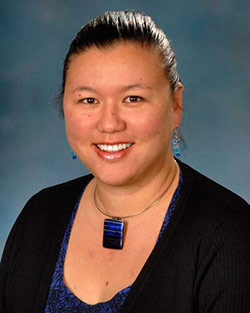 The annual Bailey K. Ashford Medal was awarded at the ASTMH meeting held this week outside of Washington, D.C. at the National Harbor. The medal is awarded annually to one or more mid-career-investigators for distinguished work in tropical medicine. Over the nearly 80-year history of the award, it has never been given to two individuals from the same institution within the same year.
The annual Bailey K. Ashford Medal was awarded at the ASTMH meeting held this week outside of Washington, D.C. at the National Harbor. The medal is awarded annually to one or more mid-career-investigators for distinguished work in tropical medicine. Over the nearly 80-year history of the award, it has never been given to two individuals from the same institution within the same year.
“Dr. Takala-Harrison and Dr. Tennant have made remarkable contributions to the field of global health,” said Kathleen Neuzil, MD, MPH, the Myron M. Levine Professor in Vaccinology, Professor of Medicine and Pediatrics, and Director of the CVD. “Dr. Takala-Harrison is conducting pioneering genomic epidemiological research that will inform drug policy, vaccine develop and malaria elimination. Dr. Tennant’s work with vaccine development, delivery and technology is changing how diseases such as non-typhoidal Salmonella impact millions of people each year.”
Dr. Takala Harrison leads the Genomic Epidemiology Unit within CVD’s Malaria Research Program. Her primary research interests include molecular epidemiology, evolutionary biology, and population genetics/genomics applied toward understanding the evolution of the malaria parasite in response to the human immune system and interventions such as drugs and vaccines. In her earlier work, she devised novel molecular epidemiological approaches to demonstrate allele-specific naturally-acquired and vaccine-induced immune responses and the role of specific polymorphisms in immune escape. She also conducted some of the seminal studies to identify regions of the malaria parasite genome associated with emerging artemisinin resistance in Southeast Asia, as well as studies showing the independent emergence and international spread of artemisinin-resistant parasites
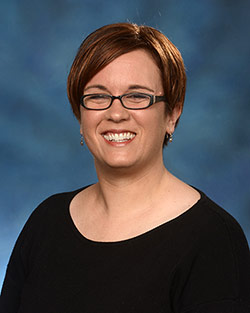 Dr. Tennant has built a research portfolio that centers on invasive non typhoidal Salmonella (NTS), an important cause of serious blood infections in African children. Her research focuses on vaccine development and diagnostic assays against these pathogens as well investigation of their pathogenic mechanisms. With several patents, Dr. Tennant has recently expanded her vaccine development research to include Klebsiella pneumoniae and Pseudomonas aeruginosa, two bacteria that cause infections in hospitalized patients. Additionally, Dr. Tennant provides molecular biology and microbiology support for field studies and clinical trials performed domestically and internationally.
Dr. Tennant has built a research portfolio that centers on invasive non typhoidal Salmonella (NTS), an important cause of serious blood infections in African children. Her research focuses on vaccine development and diagnostic assays against these pathogens as well investigation of their pathogenic mechanisms. With several patents, Dr. Tennant has recently expanded her vaccine development research to include Klebsiella pneumoniae and Pseudomonas aeruginosa, two bacteria that cause infections in hospitalized patients. Additionally, Dr. Tennant provides molecular biology and microbiology support for field studies and clinical trials performed domestically and internationally.
Dr. Takala Harrison received her B.S. in Zoology from Brigham Young University in 1999, where she began her malaria research career in the laboratory of Dr. James Jensen, a pioneer in the discovery of techniques to culture Plasmodium falciparum in vitro. After graduation, she completed a two-year research fellowship in the Division of Parasitic Diseases at the Centers for Disease Control and Prevention (CDC). She received her Ph.D. in Molecular Epidemiology from the University of Maryland School of Medicine (UMSOM) in 2006. After completing postdoctoral training in molecular epidemiology and population genetics at University of Maryland and Arizona State University, she joined the UMSOM faculty as part of the Multidisciplinary Clinical Research Career Development Program in 2008.
Dr. Tennant received her B.A./B.Sc. with honors in 1999 and her PhD in Microbiology in 2005. She began her research career studying the pathogenesis of the gastrointestinal pathogen Yersinia enterocolitica with Professor Roy Robins-Browne. Following her Ph.D., she obtained a highly competitive J.N. Peters Bequest Research Fellowship from the Faculty of Science, University of Melbourne to investigate the role of gastric acid in protection against bacterial pathogens with Professor Ian van Driel and Professor Robins-Browne. Dr. Tennant joined CVD in 2007 and received postdoctoral training in vaccinology and global health from Professor Myron Levine, Simon & Bessie Grollman Distinguished Professor, Associate Dean for Global Health, Vaccinology & Infectious Diseases. She joined the UMSOM faculty in 2008 as an Instructor and was subsequently promoted to Assistant Professor in 2012 and Associate Professor in 2017.
“Dr. Takala-Harrison and Dr. Tennant have worked tirelessly on important vaccine and disease research, tackling some of the most challenging issues facing the global health landscape. Their research is the backbone of vaccine development potentially benefiting millions who are impacted each year with diseases such as malaria, non-typhoidal Salmonella and Klebsiella pneumoniae,” said E. Albert Reece, MD, PhD, MBA, Executive Vice President for Medical Affairs at UM Baltimore, and the John Z. and Akiko K. Bowers Distinguished Professor and Dean, University of Maryland School of Medicine “Their work helps to address the most serious global health challenges we face, antimicrobial and antimalarial drug resistance.”
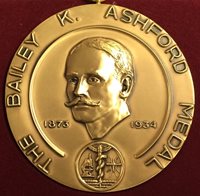 About the ASTMH Bailey K. Ashford Medal
About the ASTMH Bailey K. Ashford Medal
The ASTMH medal is given each year to professionals in tropical medicine for distinguished discoveries. The first Bailey K. Ashford medal was awarded in 1941 to Lloyd E. Rozeboom with support from Eli Lilly and Company.
The medal is named after Bailey K. Ashford, who was born in 1873, who after the Spanish American War was sent to Puerto Rico, in command of medical department troops. In 1899, at age 26, he recognized that hookworms caused the anemia prevalent among the rural populations and in 1904 he founded the Puerto Rico Anemia Commission to combat the disease. He was instrumental in founding the School of Tropical Medicine in Puerto Rico which later transformed into the School of Medicine.
About the University of Maryland School of Medicine
Now in its third century, the University of Maryland School of Medicine was chartered in 1807 as the first public medical school in the United States. It continues today as one of the fastest growing, top-tier biomedical research enterprises in the world -- with 43 academic departments, centers, institutes, and programs; and a faculty of more than 3,000 physicians, scientists, and allied health professionals, including members of the National Academy of Medicine and the National Academy of Sciences, and a distinguished recipient of the Albert E. Lasker Award in Medical Research. With an operating budget of more than $1 billion, the School of Medicine works closely in partnership with the University of Maryland Medical Center and Medical System to provide research-intensive, academic and clinically based care for more than 1.2 million patients each year. The School has over 2,500 students, residents, and fellows, and more than $540 million in extramural funding, with most of its academic departments highly ranked among all medical schools in the nation in research funding. As one of the seven professional schools that make up the University of Maryland, Baltimore campus, the School of Medicine has a total workforce of nearly 7,000 individuals. The combined School and Medical System (“University of Maryland Medicine”) has an annual budget of nearly $6 billion and an economic impact more than $15 billion on the state and local community. The School of Medicine faculty, which ranks as the 8th highest among public medical schools in research productivity, is an innovator in translational medicine, with 600 active patents and 24 start-up companies. The School works locally, nationally, and globally, with research and treatment facilities in 36 countries around the world. Visit medschool.umaryland.edu
About the UMSOM Center for Vaccine Development and Global Health
For over 40 years, researchers in the Center for Vaccine Development and Global Health have worked domestically and internationally to develop, test, and deploy vaccines to aid the world’s underserved populations. CVD is an academic enterprise engaged in the full range of infectious disease intervention from basic laboratory research through vaccine development, pre-clinical and clinical evaluation, large-scale pre-licensure field studies, and post-licensure assessments. CVD has worked to eliminate vaccine-preventable diseases. CVD has created and tested vaccines against cholera, typhoid fever, paratyphoid fever, non-typhoidal salmonella disease, shigellosis (bacillary dysentery), Escherichia coli diarrhea, nosocomial pathogens, tularemia, influenza, and other infectious diseases. CVD’s research covers the broader goal of improving global health by conducting innovative, leading research in Baltimore and around the world. CVD researchers are developing new and improved ways to diagnose, prevent, treat, control, and eradicate diseases of global impact. Currently, these diseases include malaria, typhoid, shigella and vaccine-preventable infectious diseases. CVD researchers have been involved in critical vaccine development for emerging pathogens such as Zika and Ebola. In addition, CVD’s work focuses on the ever-growing challenge of anti-microbial resistance.
Contact
Office of Public Affairs
655 West Baltimore Street
Bressler Research Building 14-002
Baltimore, Maryland 21201-1559
Contact Media Relations
(410) 706-5260

